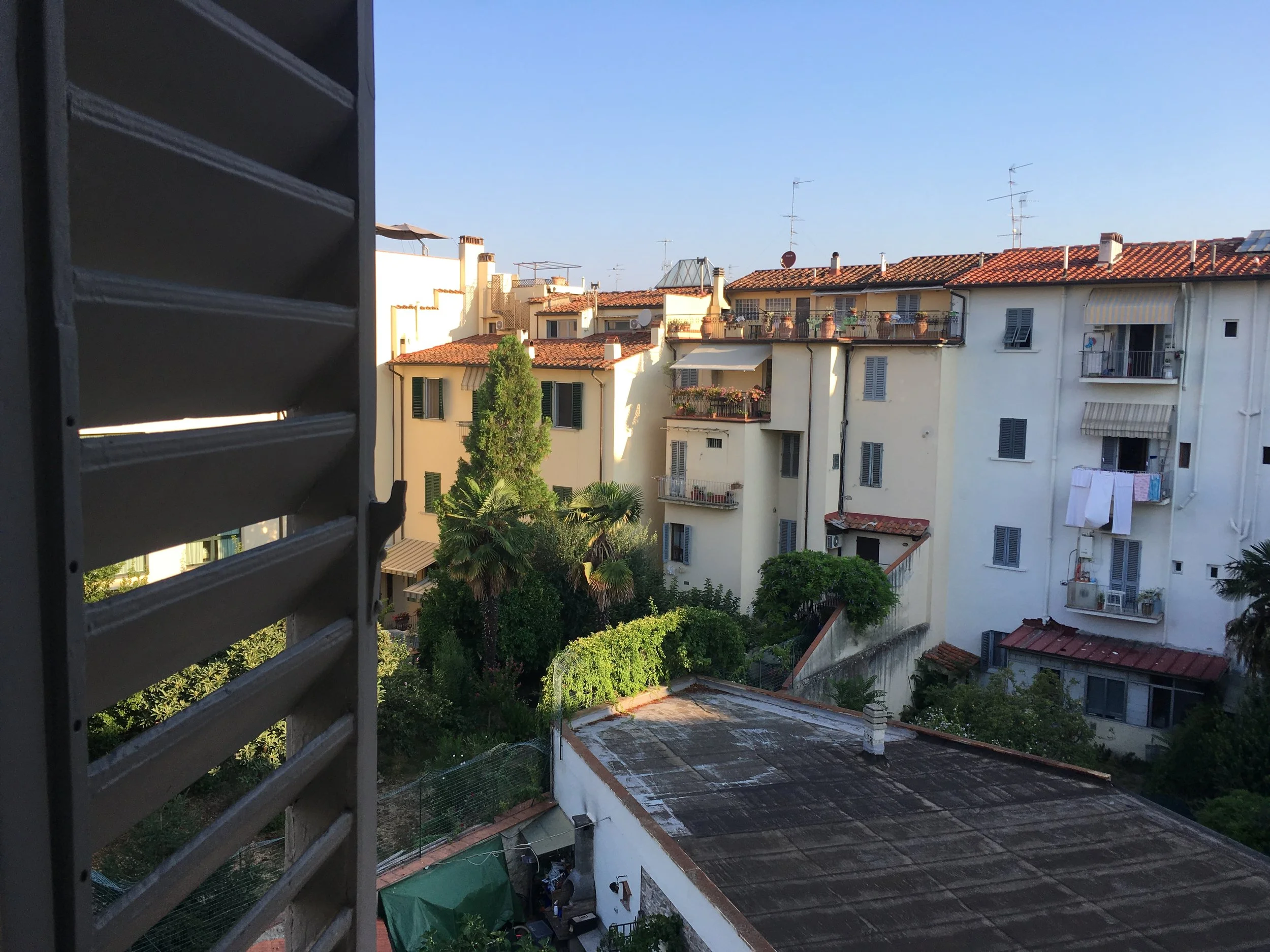Il concerto della colazione
Image credit: Harriet Gilbert Savage
There exist films that entirely rupture the trajectory of cinema. In Italy, filmic history was redefined by, splintered into ‘a time before’ and ‘a time after’ De Sica’s Umberto D. It is hailed as revolutionary in its approach to cinematic representation, and as the very conception of Italian Neorealism. So, how does such a world-altering masterpiece begin? With four minutes and twenty-seven seconds that meticulously detail the mundane morning routine of Maria, a domestic servant. Four minutes and twenty-seven seconds that expand into what feels like an eternity. Maria approaches the cooker; on the scorched and splattered wall she strikes a match. She places the match to one of the burners, though it does not take – the cooker refuses to be roused from its peaceful slumber. The second time it begrudgingly splutters to life. There is a fluidity to Maria’s motion as she fills with water a silver jug, shined through regular use, places it on the burner, and then as she begins to mill the charming coffee grinder. It is a painstakingly slow sequence, one that appears frankly uninteresting before eyes accustomed to the action and excitement abundant in today’s film industry. And yet, such tediousness does not so much attest to the inherent banality of the sequence, rather it exposes how disconnected the modern subject is from such quotidian routine.
During one of my first trips to Florence, I stayed with an Italian nonna. She lived in an apartment at the top of staircase comprised of seventy-two stone steps. My Italian consisted of little more than a halted ‘hello’, instead we communicated at the intersection between Italian and Spanish. Jumbles of romance sounds and a healthy handful of gestures conveyed all and none of what I wanted to say. Her reaction was unmistakeable, however, when I told her I wasn’t bothered about breakfast. The disquiet in her downturned mouth brimmed over into her confusion-struck eyes: to skip breakfast would be sacrilege.
I wake up the following morning enveloped in the summer’s dog days; treacly air oozes through a crack in the window, suffocating any suggestion of life. I pad into the kitchen, my feet leaving on the cool tiles a trail of sticky, sweaty slicks. The table is cast in shadowy dormancy, punctuated only by the thin streaks of sunlight that seeped through the shutters. The scene possesses a stillness; it holds its breath in quiet anticipation. I slip the napkin from the plate – it is one of those patiently embroidered cloths that are never really sold, instead passed down through generations. I shake it out and place it on my knees. This motion, like the raising of theatre curtain, signals the start of a spectacle.
My surrogate nonna appears in the door frame, a hum of suspense follows in her wake as a chiming collection of jams assembles before me: if this breakfast is an orchestra, then she is the conductor. Each jar is etched with a particular date, she tells me, her eyes twinkling with nostalgia. Every year, when the trees bow in a certain way, leaden with the weight of their ripened fruits, the whole family must gather to pluck these jewels from their leafy nests. For an entire weekend, a sturdy, enchanted pot sings merrily atop the cooker; within it a bright, sharp lake mellows to a swamp of gloopy goodness. Behind the jams stands a quaint glass milk bottle, delivered from Nonna’s brother in the mountains. His cows graze on the luscious pastures that overlook the river’s tumbling cascades. Such an Eden translates into a silky milky melody – so thick it glazes the glass with a cloudy lacquer. Biscuits and pastries overflow the plate to my left, their soaring sweetness defies the English insistence that ‘growing up’ is synonymous with ever blander breakfasts. A throng of peaches cluster before me, their fuzziness gently grazing my fingertips, drumming my attention. Their flesh yields easily, a refreshing floral harmony rings out on my tongue. And centre stage proudly stands a moka pot, its stature at once appearing enigmatically futuristic and endearingly outdated. The coffee that slips from its spout proffers bold, punchy notes. This, the crescendo of the performance, suspends me in a cocoon of contentment, time seems to dissolve into a perpetual present. I feel embarrassed by this banquet for one; I, the single audience member, am unworthy of such a show.
Image credit: Harriet Gilbert Savage
Some weeks later, once I am back in England, and to the comfortable unpredictability of the British climate. I am awoken by the stir of an unplaceable excitement, my gaze focuses on a glittering silver nugget nestled amid the muddle of my quasi-unpacked suitcase. I pick up this moka pot, the single material memory of my trip. I walk downstairs, the crush of carpet between my toes, towards the basin. I detach the lower chamber of the pot, filling it carefully, drip by drip, so that the water reaches – but crucially doesn’t surpass – the valve. I place the grounds basket atop this chamber, gently packing it with earthy grains of coffee; I brush aside a few stray crumbs that cling to the lip of the pot. I attach the top chamber, the final part of this fiddly puzzle, and place the moka pot on the burner. As the water begins to bubble and brew, it occurs to me that, to the outside eye, I appear not unlike Maria. Yet as the coffee fizzes and overflows into the upper chamber, the whisps of steam rising from the spout sharpen the already hazy memories of my trip away. I no longer urge routine, mundane and tedious, to pass more quickly . Rather, I savour the sweetness of this ritual, revelling in its ability to halt the chaos promised by the awaiting day.


